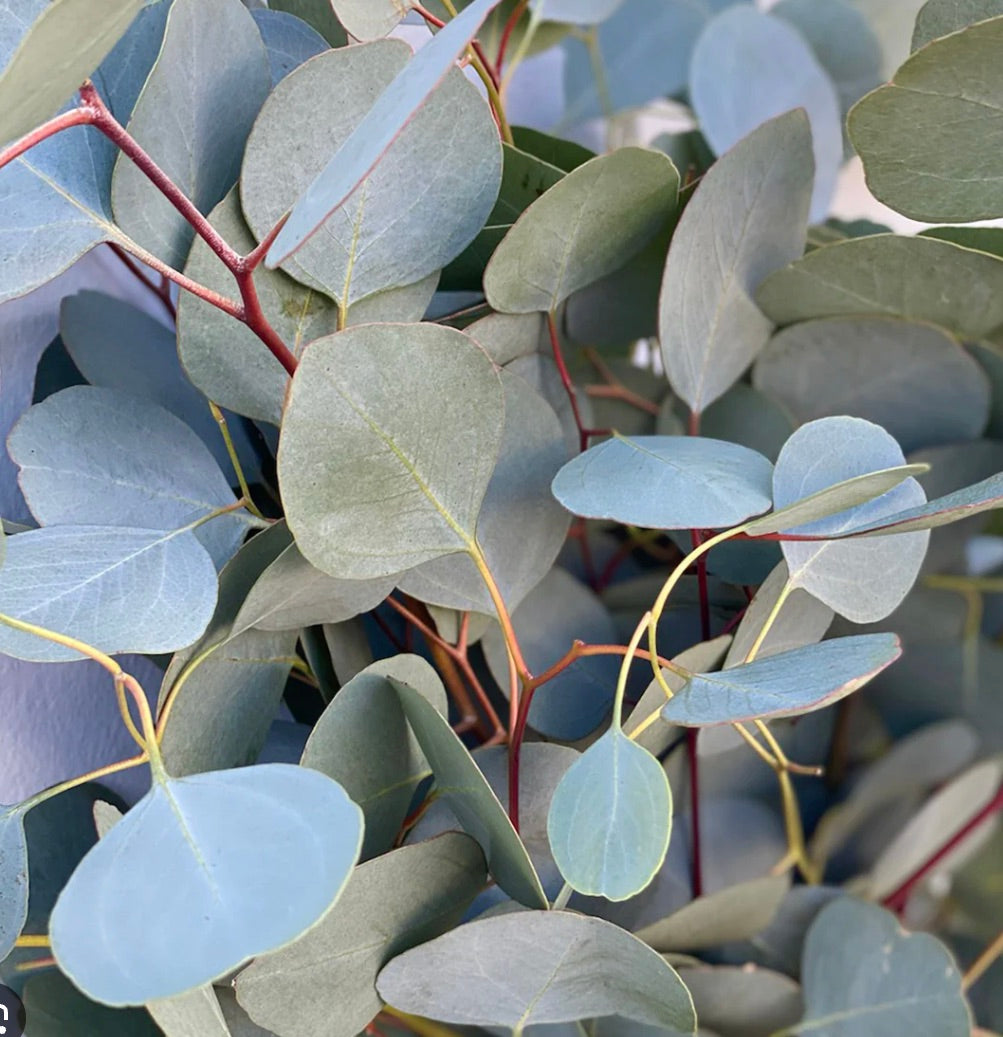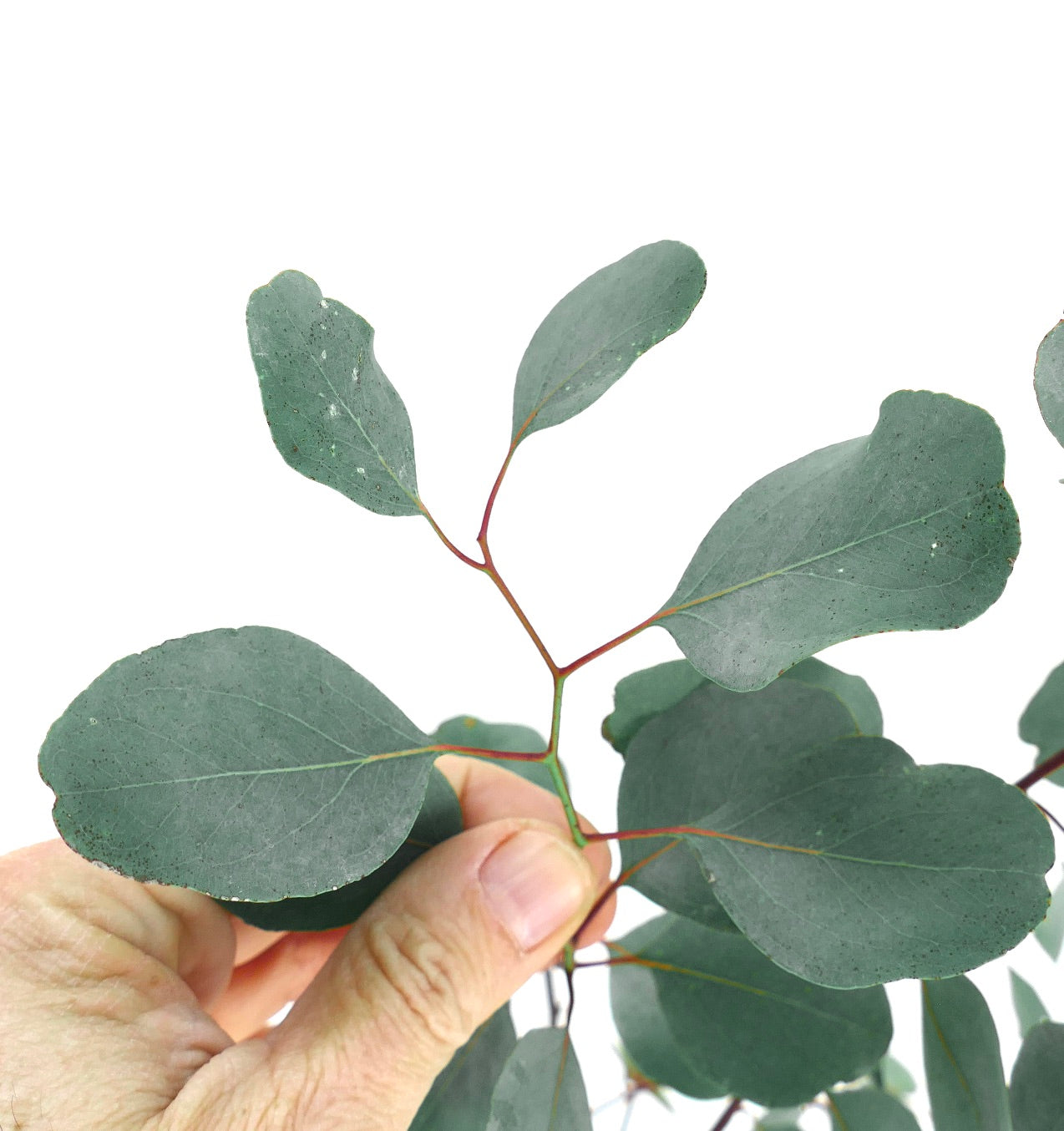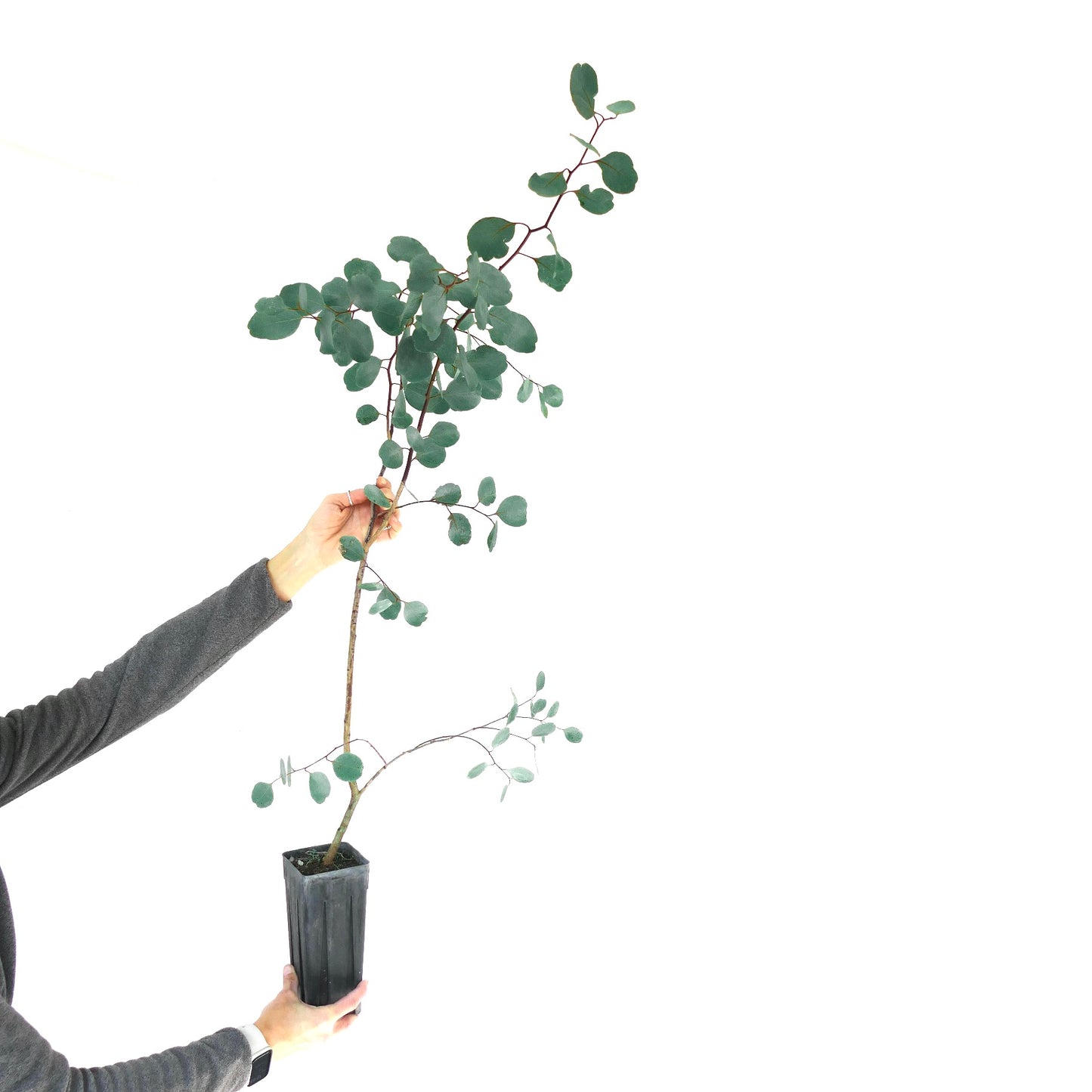Eucalyptus populus 100-150cm
Eucalyptus populus 100-150cm
Couldn't load pickup availability
Plant Description
Eucalyptus is a diverse genus of evergreen trees and shrubs native to Australia, known for its distinctive aromatic foliage and visually appealing bark. There are over 700 species of Eucalyptus, with varying sizes, leaf shapes, and growth habits.
Eucalyptus trees typically have simple, alternate leaves that vary in size, shape, and color. The leaves often contain aromatic oils, which release a pleasant fragrance when crushed. The bark of Eucalyptus trees is a prominent feature, ranging from smooth and mottled to rough and fibrous, with colors that can be anything from pale gray to reddish-brown. Eucalyptus trees are known for their fast growth, and some species can reach impressive heights, while others remain compact and shrub-like. Many Eucalyptus species produce clusters of small, inconspicuous flowers that are followed by woody capsules filled with tiny seeds.
Cultivation:
-
Climate: Eucalyptus trees are well-suited to Mediterranean, temperate, and subtropical climates. They thrive in areas with mild to warm temperatures and can tolerate occasional frost, depending on the species.
-
Sunlight: Eucalyptus trees require full sun for optimal growth. Plant them in a location where they will receive at least 6-8 hours of direct sunlight daily.
-
Soil: Well-draining soil is crucial for Eucalyptus. They prefer slightly acidic to neutral soils. Sandy or loamy soils with good drainage are ideal. Avoid waterlogged conditions.
-
Watering: Young Eucalyptus trees need regular watering until they become established. Once established, they are relatively drought-tolerant. Water deeply and less frequently, allowing the soil to dry out between waterings.
-
Pruning: Prune your Eucalyptus tree as needed to maintain its shape and remove dead or damaged branches. This can also help promote bushier growth.
-
Fertilization: Eucalyptus trees generally do not require heavy fertilization. However, you can apply a balanced, slow-release fertilizer in spring to provide essential nutrients.
-
Mulching: Apply mulch around the base of the tree to help conserve soil moisture, regulate soil temperature, and suppress weeds.
-
Pests and Diseases: Keep an eye out for common pests like scale insects and treat them promptly. Eucalyptus trees are relatively disease-resistant, but good care practices can help prevent issues.
-
Spacing: When planting multiple Eucalyptus trees, ensure proper spacing to allow for adequate growth and air circulation, as some species can become quite large.
-
Propagation: Eucalyptus trees can be propagated from seeds, which should be sown in a well-draining potting mix and kept consistently moist until germination occurs.
Remember that specific care requirements may vary depending on the exact Eucalyptus species you are cultivating, so it's essential to identify the species you have and tailor your care accordingly. Additionally, be mindful of the potential for Eucalyptus trees to become invasive in certain regions, so check with local authorities or experts for guidance on suitable species for your area.
Be aware that picture show leaves of adult plant not fro sale, the offer is for a plant in the size described.
PICTURE 1 show leaves of an adult plant not for sale, pictures 2 and 3 show an example plant similar to the one you will receive.
Pictures of this plant were taken on , please keep on mind that the plant may have grown since pictured.Also be aware that most plants change across seasons. If present foliage could have been fallen or change in its color.
Botanical family: Myrtaceae
Botanical genus: Eucalyptus
Botanical species: Eucalyptus populus
Cultivation
Cultivation
Additional information
Additional information
Plant Height: 100-150cm
Plant Diameter:
Picture Taken on:
Pot Size:
Grafted/Not Grafted:






